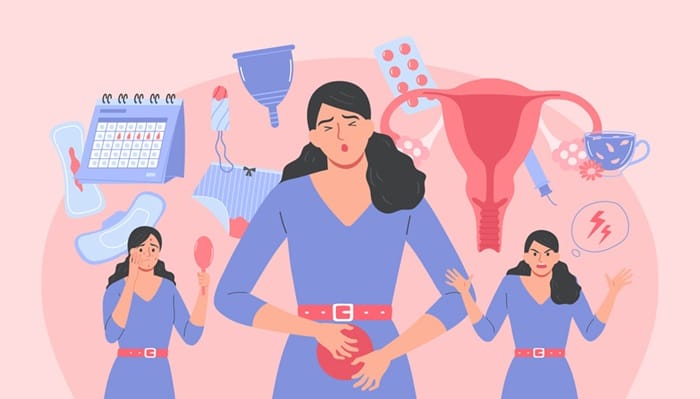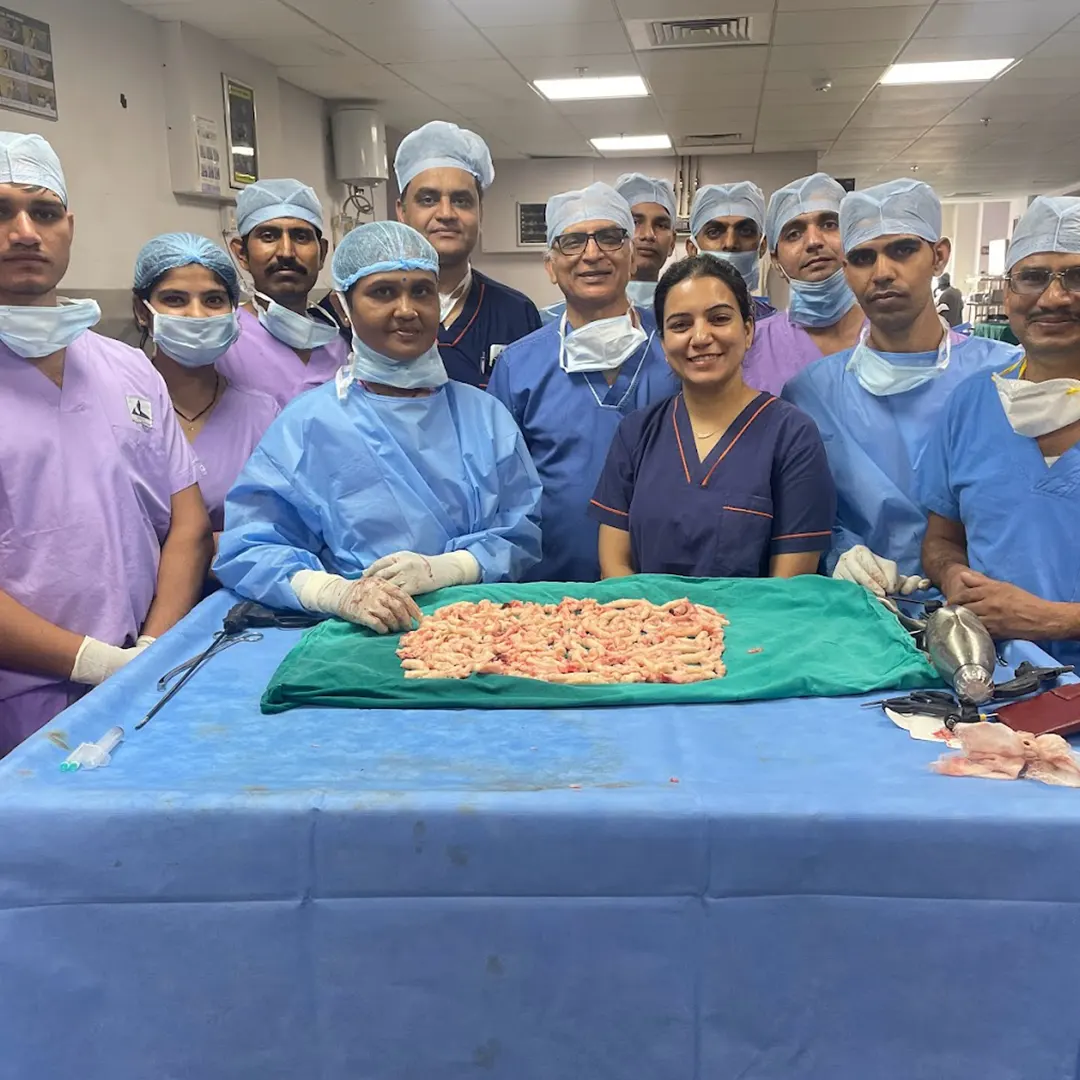Reproductive health is vital to overall well-being, with menstrual health playing a significant role. Many women face common gynaecological conditions that can affect their quality of life, such as menstrual disorders, pelvic pain, and infections. Regular gynaecological check-ups help in the early detection and treatment of various conditions, ensuring a higher quality of life and preventing serious complications. Proper management and understanding of these conditions are essential for maintaining good health and well-being.
As the best gynaecologist in Jaipur, I, Dr Pankhuri Gautam, am dedicated to providing practical and effective guidance to manage these conditions. Recognizing the symptoms and understanding the treatment options is the first step towards finding relief and ensuring that these conditions do not disrupt your daily life.
This blog aims to inform and educate about common gynaecological conditions, their symptoms, and treatments, helping you maintain optimal reproductive health and overall well-being.
Common Gynecological Conditions
1. Menstrual Disorders
The menstrual cycle is a natural, recurring process that prepares a woman’s body for pregnancy. It typically lasts about 28 days but can vary from 21 to 35 days. Menstrual disorders affect the regularity, duration, and severity of the menstrual cycle. These disorders can cause significant discomfort, impact daily activities, and affect reproductive health. Common menstrual disorders include dysmenorrhea (painful periods), menorrhagia (heavy periods), and amenorrhea (absence of periods).
Symptoms
- Severe Menstrual Cramps: Intense pain in the lower abdomen that can interfere with daily activities.
- Excessive Menstrual Bleeding: Heavy menstrual flow that requires frequent changing of sanitary products.
- Irregular Menstrual Cycles: Menstrual periods that are unpredictable in timing and duration
- Lower Abdominal Pain: Persistent or intermittent pain in the lower abdomen during the menstrual cycle.
- Fatigue and Shortness of Breath (due to anaemia): Feeling unusually tired and experiencing difficulty in breathing due to blood loss.
Treatments
- Over-the-counter pain relievers (NSAIDs): reduce pain and inflammation.
- Hormonal Therapy: Birth control pills, hormonal IUDs, or GnRH agonists to regulate menstrual cycles and alleviate symptoms.
- Iron Supplements: To prevent or treat anaemia resulting from heavy menstrual bleeding.
- Heat Therapy: Applying heating pads or hot water bottles to alleviate menstrual cramps.
- Lifestyle Changes: Incorporating regular exercise, stress management, and a healthy diet to enhance menstrual health.
2. Polycystic Ovary Syndrome (PCOS)
Polycystic Ovary Syndrome (PCOS) is a common hormonal disorder affecting women of reproductive age, characterised by the presence of multiple small cysts on the ovaries, hormonal imbalances, and irregular menstrual cycles. According to WHO’s Report, It affects about 8%-13% of reproductive-aged women globally.
Symptoms
- Irregular Periods: Inconsistent menstrual cycles with infrequent or prolonged periods.
- Unexplained increase in body weight often concentrated around the abdomen.
- Persistent and often severe acne on the face, chest, and back.
- Unwanted hair growth on the face, chest, and other areas is typically associated with male-pattern hair growth.
Treatments
- Lifestyle Changes: Regular exercise, a balanced diet, and weight management to improve symptoms and overall health.
- Medication: To improve insulin resistance and regulate menstrual cycles.
- Fertility Treatments to stimulate ovulation and improve fertility chances.
3. Endometriosis
Endometriosis is a condition where the tissue similar to the lining inside the uterus (endometrium) grows outside the uterus, causing pain and potentially affecting fertility. The exact cause is unknown but may involve hormonal, genetic, and immune system factors.
Symptoms
- Chronic Pelvic Pain: Persistent pain in the pelvic region.
- Painful Periods: Intense menstrual cramps that can disrupt daily activities.
- Pain During Intercourse: Discomfort or pain during sexual activity.
Treatments
- Pain Management: NSAIDs for pain relief.
- Hormonal Therapies: Birth control pills or GnRH agonists to reduce endometrial tissue growth.
- Surgical Options: Laparoscopy to remove endometrial implants or hysterectomy in severe cases
4. Fibroids
Fibroids are noncancerous growths of the uterus that often appear during childbearing years. Types include intramural (within the uterine wall), submucosal (under the lining of the uterus), and subserosal (outside the uterus).
Symptoms
- Excessive menstrual flow requires frequent changes of sanitary products.
- Persistent or intermittent pain in the pelvic area.
- Increased need to urinate due to pressure on the bladder.
Treatments
- Hormonal therapies to reduce the size of fibroids.
- MRI-guided focused ultrasound surgery to target and shrink fibroids.
- Surgery of Myomectomy for fibroid removal or hysterectomy for uterus removal.
5. Vaginal Infections
Vaginal infections, also known as vaginitis, are conditions where harmful bacteria, fungi, or parasites overgrow in the vaginal area, causing discomfort and various symptoms.
Types
- Bacterial Vaginosis: Overgrowth of harmful bacteria in the vagina.
- Yeast Infections: Fungal infection caused by an overgrowth of Candida.
- Trichomoniasis: A sexually transmitted infection caused by the parasite Trichomonas vaginalis.
Symptoms
- Abnormal vaginal discharge in colour, consistency, or odour.
- Persistent itching in the vaginal area.
- Burning feeling, especially during urination or intercourse.
Treatments
- Antifungal Medications Used for treating yeast infections.
- Antibiotics are Prescribed for bacterial vaginosis and trichomoniasis.
- Maintain proper hygiene, avoid douching, and wear breathable underwear.
6. Pelvic Inflammatory Disease (PID)
Pelvic Inflammatory Disease (PID) is an infection of the female reproductive organs, often caused by sexually transmitted infections (STIs) like chlamydia and gonorrhoea, leading to inflammation and potential damage to the fallopian tubes, ovaries, and uterus.
Symptoms
- Persistent pain in the lower abdomen.
- Elevated body temperature indicates infection.
- Abnormal vaginal discharge with a foul odour or unusual colour.
Treatments
- Antibiotics are prescribed to eliminate the infection.
- Hospitalisation is necessary for severe cases or if the patient is pregnant for intensive treatment and monitoring.
7. Cervical Dysplasia and Cancer
Cervical dysplasia refers to abnormal cell growth on the cervix’s surface, which can develop into cervical cancer if untreated. Cervical dysplasia and cervical cancer can be very harmful if not detected and treated early.
Early-stage cervical cancer often has a high treatment success rate, but advanced stages are more challenging to treat and can significantly impact health and survival.
Causes
- High-risk HPV strains are the most common cause of cervical dysplasia and cervical cancer.
- A weakened immune system can make it harder to fight off HPV infections, increasing the risk of developing cervical dysplasia and cancer.
- Having multiple sexual partners increases the risk of contracting HPV, which can lead to cervical dysplasia and cancer.
- Prolonged use of birth control pills causes Hormonal imbalance and has been associated with a higher risk of cervical cancer.
Symptoms
- Often Asymptomatic in Early Stages: No noticeable symptoms initially.
- Unusual bleeding after intercourse or between periods.
- Discomfort or pain in the pelvic region.
Treatments
- Regular screening (Pap smears) to detect precancerous changes.
- Surgical procedures: LEEP, cone biopsy for dysplasia.
- Radiation and chemotherapy for cancer.
- Treatments for advanced stages of cervical cancer.
Preventive Measures and Early Detection for Gynecological Conditions
Regular Gynecological Check-ups
Regular visits to a gynaecologist help in early detection and management of gynaecological conditions, improving outcomes and maintaining overall reproductive health. These check-ups can identify issues before they become serious and provide timely treatment.
Vaccinations (HPV Vaccine)
The HPV vaccine helps prevent cervical cancer and other HPV-related conditions by protecting against the human papillomavirus. It is recommended for preteens and young adults but can also benefit older individuals who have not yet been vaccinated.
Lifestyle Choices:
- Maintaining a balanced diet rich in fruits, vegetables, and whole grains.
- Regular physical activity to support overall health.
- Safe Sexual Practices: Using condoms, limiting the number of sexual partners, and getting regular STI screenings to reduce the risk of infections and complications.
Conclusion
Maintaining gynaecological health requires awareness, education, and proactive care. By staying informed and vigilant, women can ensure they receive the best possible care and support for their reproductive health, leading to a healthier and more fulfilling life.
As the best gynaecologist in Jaipur, I, Dr. Pankhuri Gautam, am committed to providing practical advice and personalised care tailored to your unique needs. Whether exploring lifestyle changes, considering alternative therapies, or seeking relief through medications and treatments, these approaches can make a significant difference in managing gynaecological conditions.
Visit our clinic for regular health check-ups, make informed decisions about your health, and explore different methods to empower you in achieving better gynaecological health. Contact us today to schedule a consultation and start your journey towards a more comfortable and fulfilling health experience. Take charge of your health and discover the best strategies for you.



